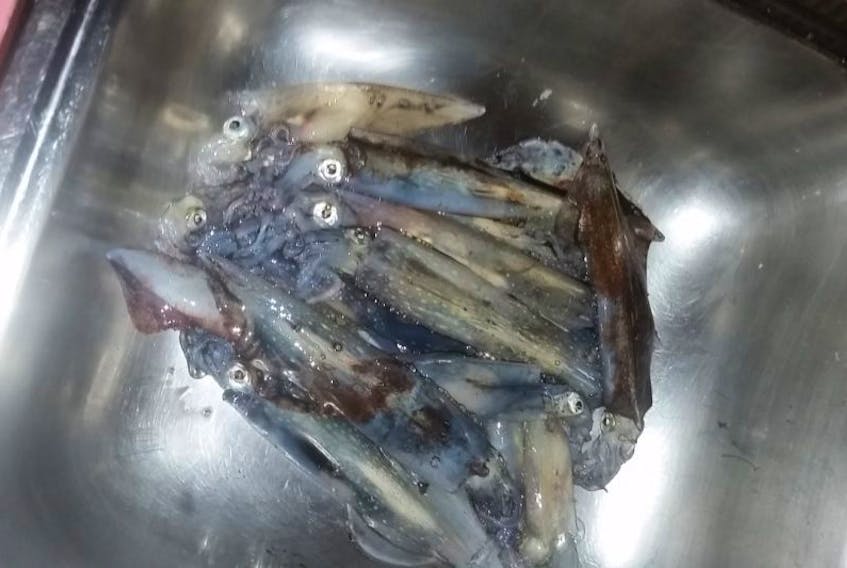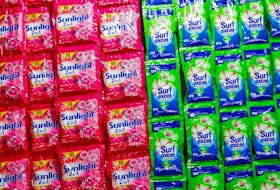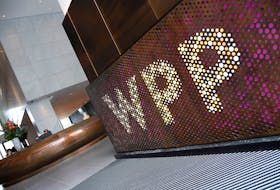ST. JOHN'S, N.L. — The Association of Seafood Producers, the group that represents most processors in the province, said Tuesday progress has been made with the union that represents inshore fish harvesters over this year’s squid fishery challenges.
An abundance of squid around the province this year has resulted in expanded harvesting and producing opportunities — with landed volumes and values well ahead of 2018.
“With the greater abundance, we needed to take care to ensure harvesters landed the best quality and that producers can produce the best quality,” Derek Butler, head of the Association of Seafood Producers, stated in a news release.
In a news release last week, Butler said this year’s squid fishery was in peril because it is not being recognized that producers need a water deduction when they buy squid from fishermen.
“Obviously, as with others species we buy, there is a level of water in the load. For example, on a load of 1,000 pounds of squid, as much as 10 per cent or more can be water,” Butler said.
“That would mean 100 pounds of water, for $0.75 a pound. That’s not a winning business proposition for the industry. When you extrapolate that to fisheries with millions of pounds landed, it just doesn’t make sense.”
In Tuesday news release, Butler said that after some protracted discussions with the Fish, Food and Allied Workers (FFAW-Unifor) union, it appears progress has been made around the issues that a large squid fishery entails — mainly what the proper price is to be paid out by processors.
“I was skeptical we'd get there, and we didn't get all the way, but we’ve had progress,” Butler said.
“We’ve managed to get some agreement on water for next year, though we wanted that this year. We don’t think producers should have to pay $0.75 a pound for water.
“We also have a new quality handling protocol, and we have language in our schedule around additional measures that producers might need to put in place to ensure, together with harvesters, that we get better value out of this fishery. That’s progress for 2019 and we’ll look for more progress in 2020.”
Butler says year-to-date the fishery is already bigger than last year, and he is confident that number will be bigger again by the time the fishery concludes in October or November.
“Overall, when you look at all the species in the inshore fishery, we’re on track for 2019 to be one of the highest-value fisheries again,” Butler said. “We’ve got our challenges, but once again it’s a business that means a great deal to a lot of harvesters, to producers and plant workers, and to communities around the province.”









